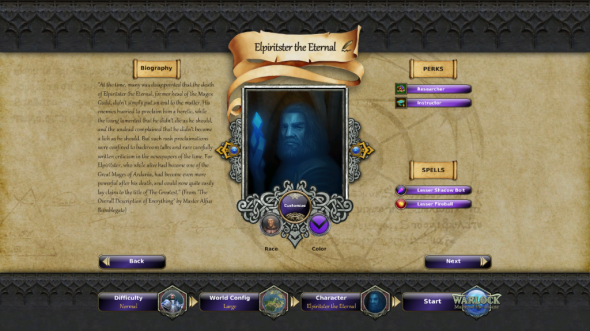

World of Warcraft - 3 Unexpected Language Comprehension Benefits
The next time you feel guilty for slacking off playing any one of the massively popular role-playing-games available, consider this: Countless individuals have had their lives positively altered by participating, you could too!
Sure if you're reading this it's likely that English is your first language, however, there are benefits to being a facilitator, transmitter of information. Your participation could have a stronger impact than you think.

1. Enhanced Vocabulary
One study asked participants whether World of Warcraft was helpful for their comprehension and found remarkably that their comprehension benefited greatly from participation.
Respondents cited frequent evolution of their language skills by native speakers of their target language to be very helpful. This boon to learning is unique in that it required nothing but participation in the game for them to reap the benefits.

Frequent references to objects, characters, scenarios and locations all come into play. These are all imaginary categories within the context of the game, but they are not without real-world counterparts, thus the information is of greater relevance to someone attempting to enhance language skills playing the MMOG than native speaking players.
Studies show a boost in terms both contextually linked with WoW such as “quest” and “lord overblaze” as well as wholly applicable phrases such as “I’m sorry” and “What’s up?”
After seven weeks of monitored participation, subjects demonstrated more relevant interactions, fluidity, and more rapid problem solving.
2. Increased Student Motivation and Engagement
There are countless studies attempting to articulate what motivates students whether they’re in grade school, University, or seeking their masters in the school of life. Any fast-food employee will tell you training is an essential part of the process of acquiring new skills, but the environment in which training is facilitated makes a world of difference.
A bustling drive-through window where regulars recite their usual orders without a care expecting business as usual is no place to throw a newbie on their first day. The reason is that they’re simply not ready, and this is too demanding of an environment for them to be expected to perform well.

Guilds are an important part of this motivation because players form them in order to battle a common enemy. Guilds also impact the individual seeking to acquire additional language skills in that they facilitate engagement between members of club within a club.
Novice participants may glean additional vital information about advancing through WoW's levels from a variety of online resources optimized for both Mac and PC.
In addition to the security provided by participating in a virtual world, there is an added bonus in the fact that within your guild you have even more in common with that character who is, after all, a real person.
WoW boasts a massive amount of players (estimated at 11 million!) and universal-appeal, making it an ideal middle ground between non-native English speakers and those who are fluent.
As we grow more competent in a subject, our confidence and by extension motivation to participate in that subject is positively influenced. One study found that not only did participating in WoW boost general understanding of key terms involved and in general, players abilities to communicate effectively was shown to have been influenced positively.
3. Opportunities for Cross Cultural Communication
MMOGs such as WoW provide a limitless number of native speakers, and the diminished risk of frustration from failure to communicate.
Learning a new language is as stressful a task as there is, considering you’re battling for the ability to understand those around you. You’re essentially a child all over again trying to piece together the thoughts and comments of those around you. Language is essential to daily life for tasks ranging from what to eat, where the bathroom is, and how to find out where places are.
By providing a risk-free learning space those attempting to pick up new language skills are put at ease because the risks aren’t real. There is no immediacy to your needs; you are still in your usual, comfortable physical world with access to every amenity you’re accustomed to.

Studies have also shown that as players acclimated themselves to their role in the game, and used that as motivation rather than simply their desire to learn their target language, their openness and overall participation increased.
These budding linguists not only increased their levels of regular game play as their comprehension developed, they also participated more in related chats where topics are more diverse.
Players are granted the ability to interact with characters or other players they may feel comfortable enough with to deviate from the subject matter, and were more likely to engage in conversation in regard to additional topics which also fueled vocabulary skills.
Sources:
Sykes, J., Oskoz, A. and Thorne, S. L. (2008) Web 2.0, Synthetic Immersive Environments, and the Future of Language Education. CALICO Journal, 25(3): 528–546.
Bytheway, J. (2011) Vocabulary learning strategies in massively multiplayer online role-playing games: a thesis submitted to the Victoria University of Wellington in partial fulfillment of the requirements for the degree. Unpublished Masters Thesis.
Rankin, Y. A., Morrison, D., McNeal, M., Gooch, B., and Shute, M. W. (2009). Time will tell: in-game social interactions that facilitate second language acquisition. In: Young, R. (ed.), Proceedings of the 4th international conference on foundations of digital games. New York: ACM, 161–168.
Rama, Paul S., et al. "Affordances for second language learning in World of Warcraft." ReCALL 24.03 (2012): 322-338.




 5 Quality Multiplayer Games With Low System Requirements
5 Quality Multiplayer Games With Low System Requirements Warlock: Master of the Arcane Starter Guide - AlterGamer
Warlock: Master of the Arcane Starter Guide - AlterGamer DOTA Hero Tips: Drow Ranger
DOTA Hero Tips: Drow Ranger ArcheAge Guide to Greater Howling Abyss
ArcheAge Guide to Greater Howling Abyss How to make an easy monster trap in Minecraft
How to make an easy monster trap in Minecraft